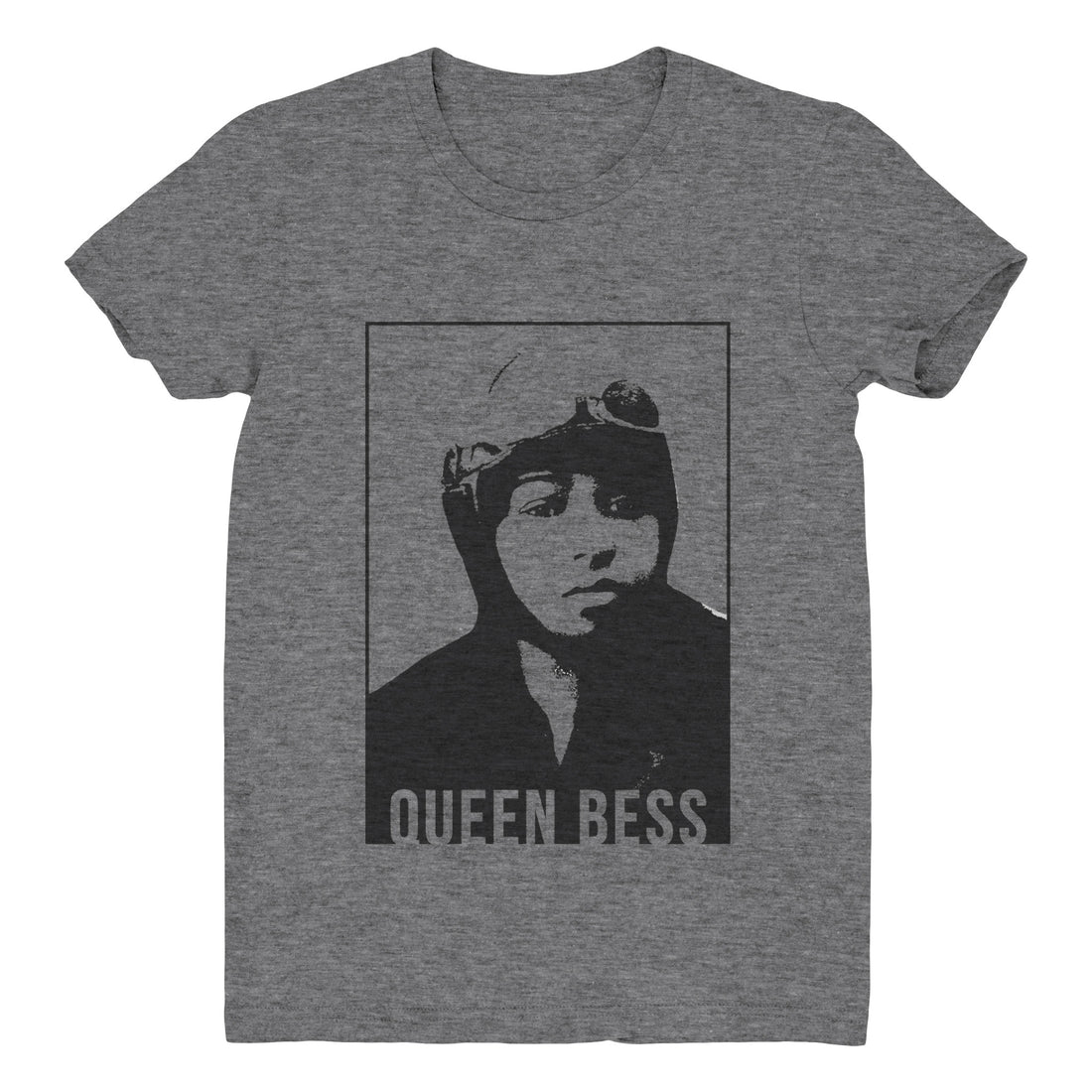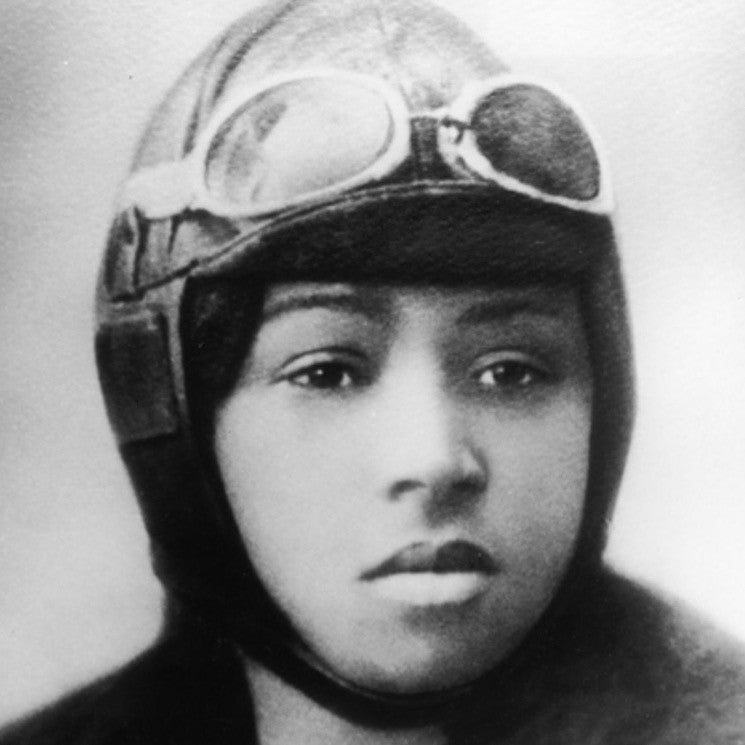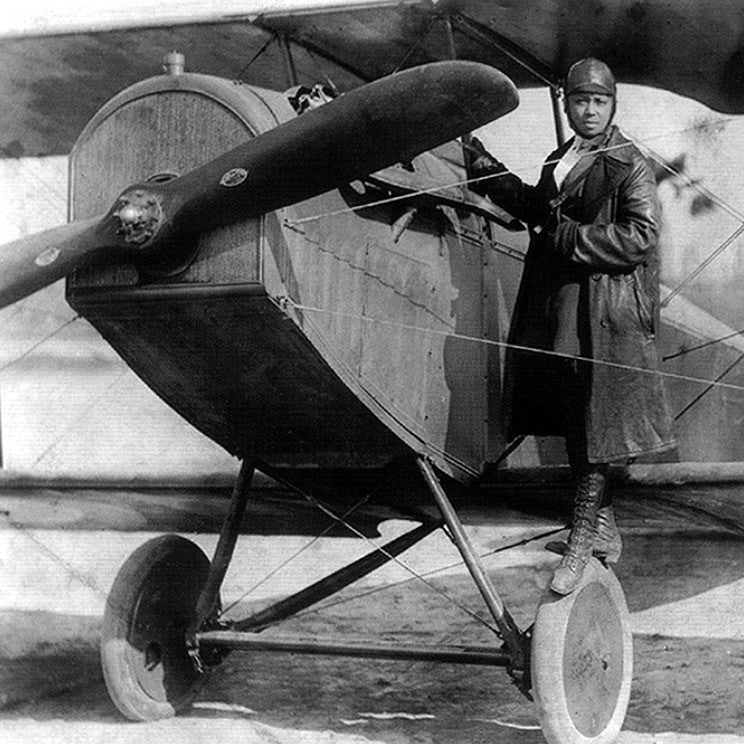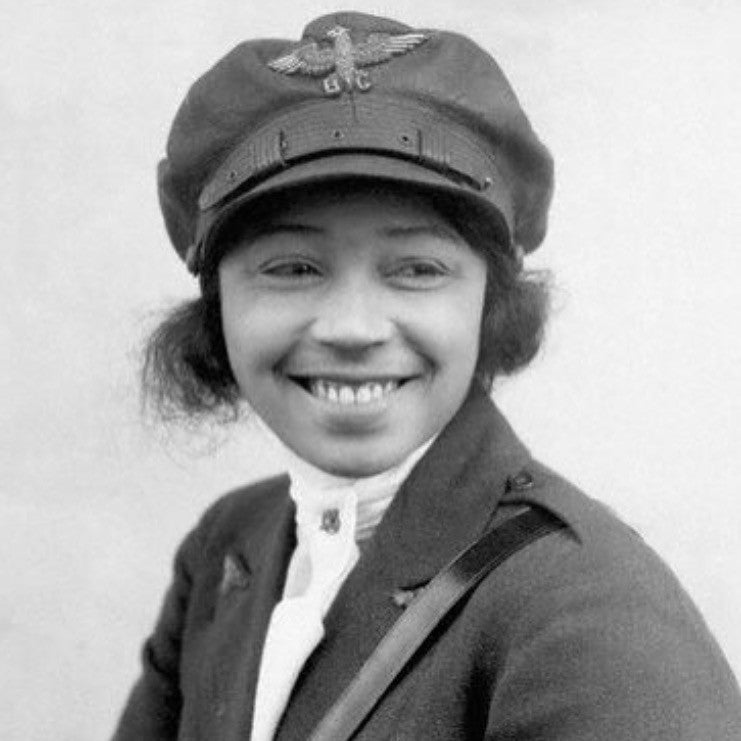QUEEN BESS Unisex T-Shirt
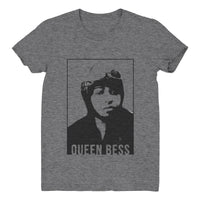
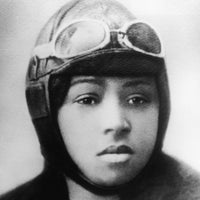
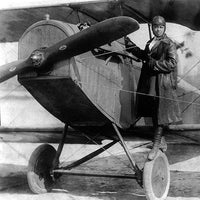
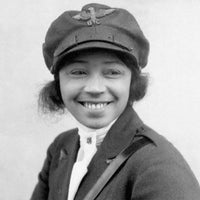
QUEEN BESS Unisex T-Shirt
Elizabeth "Bessie" Coleman (January 26, 1892 – April 30, 1926) was a pioneer for women in the field of aviation. She was the first female pilot of African American descent and the first Native American woman to hold a pilot license during a time of both gender and racial discrimination.
It was soldiers returning from World War I with wild tales of flying exploits who first interested Coleman in aviation. Every flying school she approached refused to admit her because she was both black and a woman. (Very few American women of any race had pilot's licenses in 1918 – those who did were predominantly white and wealthy.) Because flying schools in the United States denied her entry, Coleman took it upon herself to learn French and move to France to achieve her goal. After only seven months, Coleman earned her license from France's well known Caudron Brother's School of Aviation.
Though she wanted to start a flying school for African Americans when she returned to the U.S., Coleman specialized in stunt flying and parachuting. Over the next five years she performed at countless air shows. Coleman once said, "The air is the only place free from prejudices."
Tragically, on April 30, 1926, Coleman was killed in an accident during a rehearsal for an aerial show which sent her plummeting to her death. She was only 34 years old.
Bessie Coleman broke barriers and continues to inspire. She had an unwavering sense of adventure and a determination to succeed. Quite simply, she "refused to take no for an answer."
This updated unisex essential fits like a well-loved favorite, featuring an irresistibly soft poly-cotton blend and crew neck.
| Fits Chest Size | |
| S | 34" - 37" |
| M | 38" - 41" |
| L | 42" - 45" |
| XL | 46" - 49" |
| 2XL | 50" - 53" |

